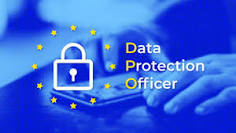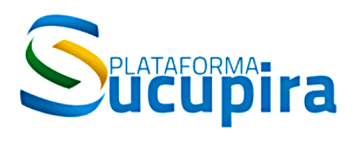ABOUT THE JOURNAL
It is with great satisfaction that I introduce RECINTER21 – a scientific journal dedicated to spreading information, promoting knowledge, and fostering sharing among those who strongly believe in the transformative power of education for society and its individuals. As a scientific publication, RECINTER21 aims to be a reliable refuge for researchers and experts to present their work, making it accessible to everyone in a democratic way. Sharing information and knowledge means contributing to a world with a broader understanding of the many variables that shape our reality, understanding that we live in a fluid society where empathy makes us more human.
This journal is the result of the vision of university professors who wanted to establish a platform that reflected the excellence of scientific works, with an editorial and scientific board worthy of the contributions submitted. It is an independent initiative managed by its editor-in-chief and supported by an editorial and scientific board, all aligned with the mission and regulations of RECINTER21. Created with the purpose of becoming a reference in electronic scientific publications from 2024.
With an interdisciplinary focus, RECINTER21 adopts a continuous monthly publication model. Its scope is to promote social, political, and economic development through the dissemination of scientific and technological knowledge in various fields.
We reinforce the journal's commitment to privacy and data protection, with a Data Protection Officer (D.P.O) registered under No. 417416.20760564, in compliance with Law 13.709/2018, Art. 41 - LGPD.
Educational Sciences
We accept works related to teaching and learning.
Agricultural and Biological Sciences
We accept works related to various fields of Agricultural and Biological Sciences.
Health Sciences
We accept works related to various health sciences.
Exact and Earth Sciences
We accept works related to various fields of Exact and Earth Sciences.
Human and Social Sciences
We accept works related to various fields of Human and Social Sciences.
Engineering
We accept works related to various branches of engineering.
Review Articles
Review Articles from various fields of knowledge are accepted.
Reviews
Book reviews from various fields of knowledge are accepted.
Book Chapters, Interviews, and Scientific Reports, Undergraduate Theses
Undergraduate course completion works/reports/research papers are also accepted.
As a multidisciplinary journal, we accept articles, reviews, and undergraduate theses from various fields of knowledge such as Administration, Agronomy, Architecture, Art, Biology, Computer Science, Religious Studies, Aeronautical Sciences, Social Sciences, Communication, Accounting, Education, Law, Physical Education, Agricultural Engineering, Environmental Engineering, Civil Engineering, Computer Engineering, Production Engineering, Electrical Engineering, Mechanical Engineering, Design, Chemical Engineering, Ethics, Philosophy, Physics, Gastronomy, Geography, Financial Management, History, Languages, Literature, Marketing, Mathematics, Environment, Meteorology, Nutrition, Dentistry, Pedagogy, Psychology, Chemistry, Religion, Health, Sociology, Theater, Technology, Theology, Tourism, Veterinary, and Animal Husbandry.
Peer Review Process
The article evaluation is conducted using the Double Blind Review method, where each manuscript is evaluated by two external ad hoc reviewers who are part of the journal's editorial board, selected for their areas of expertise. After submission, the article is evaluated by the reviewers, who analyze and suggest corrections when necessary. The editor conducts the final analysis and decides whether to reject or accept the article, always following the recommendations of the expert reviewers. After the editor's analysis, the article is returned to the authors for improvements suggested by the reviewers, if any. Finally, the author submits the final version of the manuscript, along with the respective similarity detection software report (possibly CopySpider). The evaluation is blind, without identification of authors and ad hoc reviewers.
Open Access Policy
This journal provides immediate open access to its content, following the principle that making scientific knowledge freely available to the public promotes greater global democratization of knowledge.
Ethics and Best Practices in Publication
The journal is committed to following best practices concerning moral conduct consistent with the scientific editing of journals. The journal adheres to the COPE – Committee on Publication Ethics guidelines regarding the ethical publication of scientific work. Preventing negligence is also the responsibility of the author, editor, and editorial team: any form of unethical behavior, including plagiarism, is not accepted. Authors submitting articles to the journal guarantee that the work has not been published nor is under review/evaluation by any other journal. Research involving human beings conducted in Brazil must present approval from the Ethics Committee at the time of submission (CEP).
Our Mission Statement
The RECINTER21 Scientific Journal is an interdisciplinary scientific publication focused on promoting social, scientific, and technological development through the publication of discoveries in various fields. It is a monthly continuous flow journal, given the demands of the publishing market. It publishes various types of manuscripts, such as scientific articles, reviews, and undergraduate theses from various fields of knowledge.
Ethics and Best Practices in Publication
RECINTER21 has scientific arbitration aimed at ensuring ethical standards. We seek the agreement of all involved in the editorial process – Editors, Editorial Board, ad hoc Reviewers, and Authors – regarding good practices and ethical behavior. Our reference is the Code of Conduct and Best Practice Guidelines for Journal Editors by the Committee on Publication Ethics (COPE), which requires:
Editors:
- Ensure adherence to good editorial practices.
- Review submitted articles and approve those within the journal's scope.
- Guarantee the protection of the identity of authors and reviewers involved in the review process.
- Safeguard and protect authors' intellectual property rights.
- Ensure an anonymous peer review process (double-blind peer review) that is as fair and impartial as possible.
- Guide Guest Editors, Authors, and Reviewers about the editorial flow and peer review process, involving adherence to the journal's guidelines, submission, review, and further processing.
- Ensure unpublished material in an article is not used in research and publications by Editors or Editorial Board members without author consent.
- Respond to inquiries regarding published articles about possible editorial misconduct, following COPE guidelines.
- Publish corrections, clarifications, retractions, and apologies when necessary.
Reviewers:
- Inform Editors of their availability to review an article.
- Decline an invitation if they do not feel qualified to review based on the topic; if recognizing authorship aspects; and/or if there is a conflict of interest.
- Treat manuscripts as confidential documents, protecting intellectual property rights and keeping information confidential, committing not to use privileged information for personal gain, including in their research/publications.
- Prepare reviews based on best editorial practices regarding ethics, impartiality, and respect for human rights.
- Inform Editors of any identification of good practices violation, author rights infringement, and/or plagiarism practices.
Authors:
- It is the authors' obligation to understand the focus, scope, and concept of the journal, as well as the submission guidelines.
- Ensure the submitted article is original, and if it expands upon work published in conference proceedings, ensure consistent discussion and significant analysis.
- Prepare the article based on good practices: systematic research/study conducted coherently discussing data and presenting contributions to the multidisciplinary field without personal judgments or partisan accusations.
- Ensure that the article is not submitted to another journal simultaneously.
- Follow the guidelines of the Research Ethics Committee of their institution regarding research involving human beings.
- Guarantee there is no plagiarism, and properly credit excerpts from other works.
- Ensure the article has not been published in another journal; if it is a translation of an international publication, it must be stated on the first page.
Peer Review Process
The evaluation of manuscripts in RECINTER21 is conducted by peers using the Double Blind Review method, where each manuscript is assessed by two external ad hoc reviewers, chosen based on expertise or alignment with the thematic content of the manuscript under review. After submission, the manuscript is reviewed by the ad hoc reviewers, who analyze, suggest corrections, and improvements. The editor then makes the final analysis, resolves any controversy, reviews the opinions, and decides to reject or accept the manuscript. After the editor's review, the manuscript is returned to the authors for the suggested improvements.
Open Access Policy
RECINTER21 offers free and immediate access to its content, following the principle that making scientific knowledge freely available to the public promotes greater global democratization of knowledge. RECINTER21 meets the interests of authors and readers, always following the guidelines of OJS – Open Journal Systems, COPE – Committee on Publication Ethics, indexers, and the journal's regulations published on the site. The journal meets the definitions of the DOAJ – Directory of Open Access Journals regarding open access.
Archiving
This journal uses the LOCKSS system to create a distributed archiving system among participating libraries, allowing them to create permanent archives for the preservation and restoration of the journal.
Licensing
RECINTER21 is licensed under a Creative Commons Attribution 4.0 International License.
Journal History
The journal was born out of an idea by two university professors who aimed to create a place that would reflect scientific work and have an editorial and scientific board worthy of the quality of the works presented. It is an independent production, directed by its editor-in-chief (responsible for its management), the editorial board, and the scientific board, following its Mission and Regulations approved and published in this space. Its broader scope is to meet the demands of academia and the market, allowing both to flow together to meet the needs of human beings. Thus, RECINTER21 is born with the purpose of becoming a reference in scientific journals published electronically over the Internet from 2024 onward.










